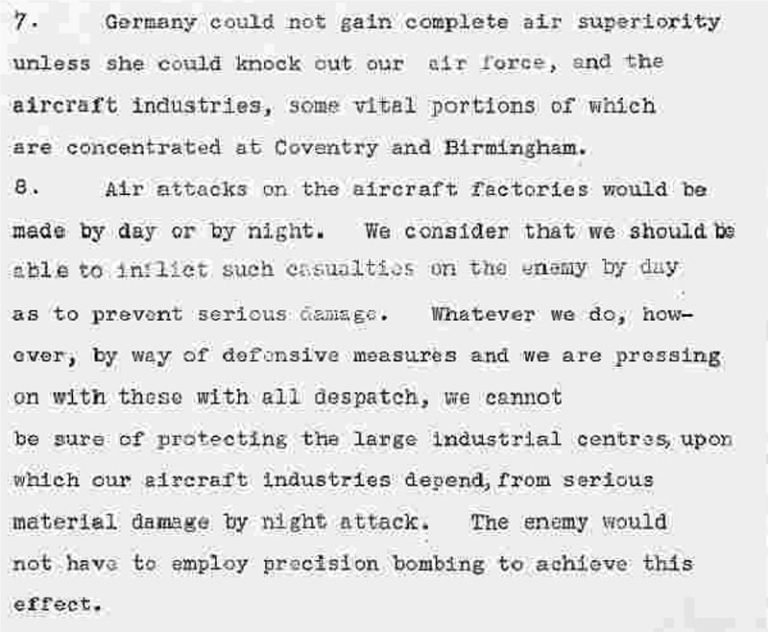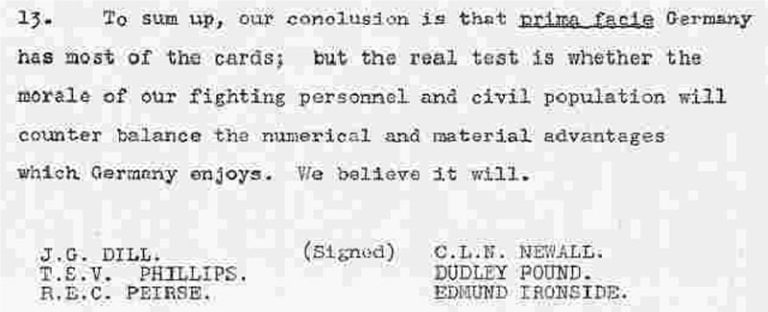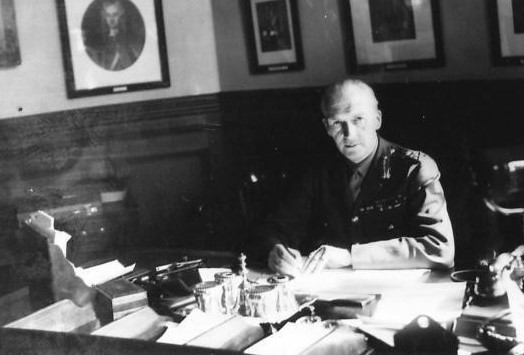In his diary Neville Chamberlain described Sunday 26 May 1940 as ‘the blackest day of all’. It was a day when Britain’s prospects in the war looked perilous and, to set a seal on the gloomy news, for the first time in many days it rained.
This was declared a National Day of Prayer. People throughout the country gathered in their local churches and chapels. The King and the Queen, carrying gas masks, attended a 10am service at Westminster Abbey.
On 10 May Hitler had invaded the Low Countries – Belgium, Luxembourg and the Netherlands – and France. Events had moved swiftly since then. By 26 May the British and French forces had been driven back to the coast around Dunkirk by a large German force. The allies were putting up heroic resistance against overwhelming odds at Calais and Boulogne.
Gloomy news
There were three War Cabinet meetings that day, the first convened by Churchill at 09:00, unusually early. At this meeting, Churchill gave an account of the situation regarding the French and the Belgians. He had a letter from his personal representative in Paris, General Edward Spears – it was all bad news. The King of Belgium was making ready to capitulate.
A few days before Churchill had asked the Chiefs of Staff Committee[ref]The Chiefs of Staff Committee (CSC) consists of the most senior military personnel in the British Armed Forces who advise on the preparation and conduct of military operations.[/ref] to consider the situation that would arise if the French were to drop out of the war. He asked, ‘What are the prospects of our continuing the war alone against Germany and probably Italy?’
The Chiefs of Staff answer came in the form of a memorandum entitled ‘British Strategy in a certain eventuality’ – and this is what Churchill now presented to the Cabinet. As David Owen has pointed out, ‘the term “Certain Eventuality” was, of course, a disguise for the unmentionable, the fear that France would fall'[ref]Cabinet’s Finest Hour, The Hidden Agenda of May 1940, David Owen (Haus, 2016), p. 213.[/ref].
In this document, the Chiefs of Staff offered ‘a reasoned case for hope’. Together with air attacks and revolts in the enemy-occupied countries, Germany could be defeated – at some time in the future, and with American help.
Options debated
However, despite Churchill relaying this cautious optimism, the War Cabinet began to engage in debate about a very different option for Britain. At this meeting, and the two subsequent meetings that day, it became clear that the Foreign Secretary Lord Halifax was pursuing, with vigour, the possibility of a negotiated peace with Hitler through the services of Mussolini[ref]Halifax had first informed the Cabinet that moves in this direction were being explored on 25 May.[/ref]. This development caused significant tensions between Halifax and Churchill during the War Cabinet meetings of 26-28 May.
The Chiefs of Staff produced a further paper, ‘British Strategy in the Near Future’ which was completed late on 26 May. Despite its brevity, this was even more significant than the paper it built upon, ‘British Strategy in a Certain Eventuality’. A strong strand of optimism runs through this report, but this is tempered with some sobering statements, as one can see from these paragraphs.

The truly crucial statement came in the last paragraph.

Those four words – ‘we believe it will’ – are profoundly stirring. The Chiefs of Staff were saying that, despite the huge scale of the threat, Britain would be able to fight on after the fall of France, and they believed that the morale of the British people will hold up. The optimism enshrined in this paper arrived at such a crucial time – it was considered by the War Cabinet at the 11:30 meeting on 27 May and amounted to a rare ray of light in the darkness – and the war situation was looking very gloomy. This was a very bad day at Dunkirk for the British Expeditionary Force: German bombs were raining down and a relatively small number of British troops were able to leave for England that day.
Sense of hope
The document bore the signature of General Sir John Dill, who took over as Chief of the Imperial General Staff from Sir Edmund Ironside on 27 May. Although Churchill’s influence on this paper was strong, ‘it had the stamp and authority of a new head of the Chiefs of Staff’[ref]Cabinet’s Finest Hour, The Hidden Agenda of May 1940, David Owen (Haus, 2016), p.217. The paper was dated 26 May, and Dill did not formally take over the postion of CIGS until the next day, but it is significant that his signature is postioned first, and the Cabinet considered the document on 27 May. It is reasonable to assume that Dill was the driving force behind it.[/ref]. Dill did not enjoy the happiest relations with Churchill as the war went on, but the common consensus among historians is that he gave the War Office a strong sense of purpose and drive during this pivotal time in 1940.

‘British Strategy in the Near Future’ is one of the most important documents of the Second World War. It is measured and sober, but that last sentence ‘we believe it will’ carries a powerful emotional charge for those who experienced the war, and it resonates for successive generations exploring the war as history.
Areally interesting article and enjoyable to read. Thank you Mark Dunton.
Halifax should have been got rid of at the time (even imprisoned for defeatism), a peace with Hitler would mean the UK would end up the same as Czechoslovakia after the Munich Agreement and invaded. The fall of the Low Countries had been an issue before the war, not least because of the gold and industrial diamonds in The Netherlands.
Democracy is demonstrably better than the alternative; it brings out the best at the worst time unlike the alternatives.
The fly boys saved us initially at a tremendous cost to themselves. I recall my uncle Albert, who was on a channel mine sweeper at the time and got roped in, telling the story of the only ones who cared (looked after) our lads when the little boats landed them was the good old Sally Army. They were ready with a mug of tea and a sandwich. They still get a good donation from me at XMas as a thankyou.
Very poignant words, “We believe we will”, that even in the face of overwhelming odds, the just will prevail!
My 20-year-old cousin, David Alan Charles Holmes was killed in France on 27th May 1940 during fighting at the time of the Dunkirk allied withdrawal to the coast near Merville. He was a Gunner in the Royal Artillery 99 (The Royal Buckinghamshire Yeomanry) Field Regiment.
Churchill. The right man at the right time, for the leadership of England in its darkest hours.